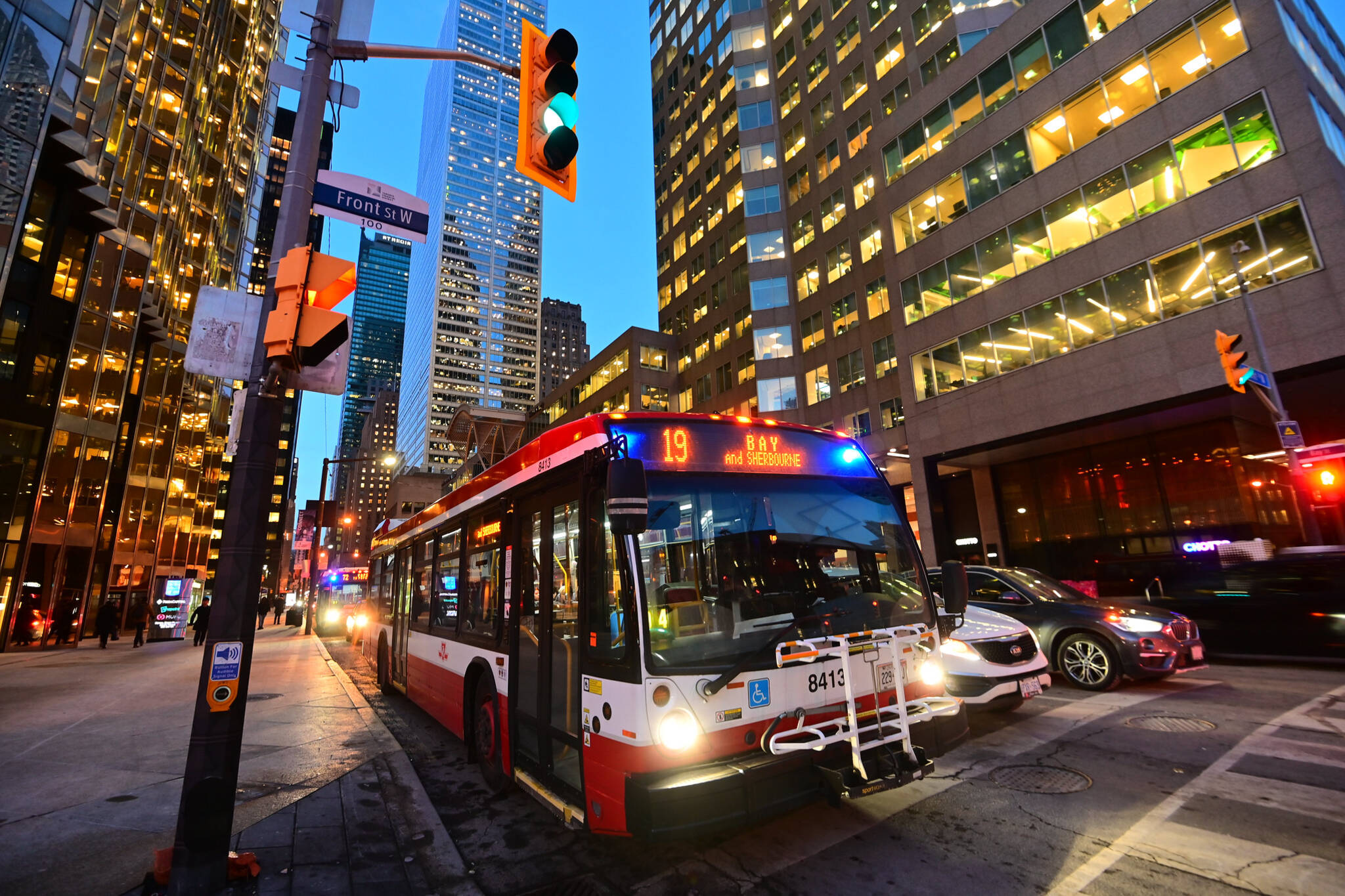
Here are all the reasons people in Toronto prefer driving over public transit
A new study published Wednesday finds that almost two-thirds of Toronto residents would rather drive than take public transit, a not-too-surprising revelation amid a neverending barrage of headlines about shocking crimes on the TTC network.
The report from Hitachi Rail — the same company building trains for the coming Ontario Line — looked at attitudes towards public transport and smart mobility in eight cities around the globe, including right here in Toronto.
Researchers investigated 8,000 peoples' perceptions of transit systems in eight global cities - Washington, D.C., Toronto, London, Paris, Dusseldorf, Turin, Dubai and Bangkok - with an aim to better understand factors drawing in or repelling transit riders.
Study respondents in Toronto heavily favoured driving over taking public transportation, with a whopping 63 per cent saying their idea of the TTC stands for Taking The Car.
Factors cited include crowd avoidance (72 per cent), cost (63 per cent) and the convenience of using a personal vehicle to get around Toronto's gridlocked streets (44 per cent).
That doesn't mean Toronto residents straight-up hate public transit. In fact, the report shows quite the opposite, with 76 per cent of respondents admitting that public transportation can bring positive environmental impacts.
Many would be more willing to ride public transit networks if they offered better connections, including Toronto residents, polling at 61 per cent. This is still much lower than the global average of 75 per cent, which could be read as a sign that connectivity isn't the issue for a large share of locals.
There have, of course, been unforeseen factors driving a decline in transit use, most notably the dark days of 2020 and 2021.
Over two-thirds of respondents (67 per cent) acknowledge that the lockdown era changes the way they travel, while 54 per cent say they are more likely to drive than take transit due to concerns over public health.
Just under half of the respondents (49 per cent) strongly or slightly agree that their travel choices will change as the world returns to normal.
"Now that we are moving into a post-pandemic environment, we are encouraged to see how Toronto responds to public transport and the new technology, safety programs and sustainability practices that have become available since they last rode," said Andrew Barr Group CEO, Hitachi Rail.
The train manufacturer made a splash in Toronto late in 2022 with the reveal of Ontario Line train designs in conjunction with a rolling stock contract announcement.
This is what Toronto's futuristic new Ontario Line subway trains will look like https://t.co/qfGm1nTz1t #Toronto #OntarioLine
— blogTO (@blogTO) November 17, 2022
This November announcement came with flashy renderings of futuristic trains and the promise that they would offer features like onboard WiFi, digital passenger information screens, charging points, dedicated spaces for bicycles, double wheelchair areas, and continuous, connected carriages.
Latest Videos
Latest Videos
Join the conversation Load comments







